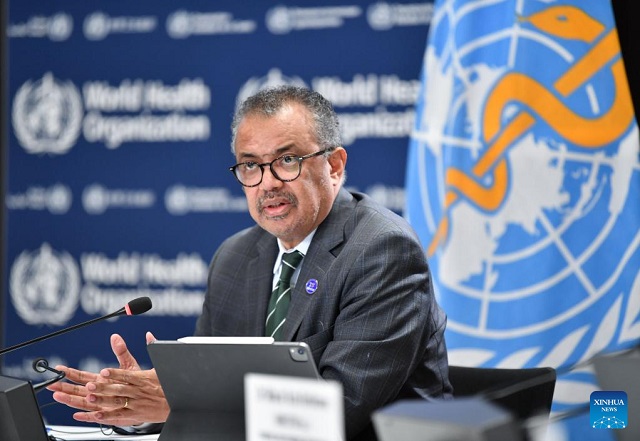
Bogotá, Colombia | THE INDEPENDENT | Eight countries including Uganda, Burundi, Czechia, Gambia, Panama, Sri Lanka, Tajikistan and Kyrgyzstan have pledged to pursue legislation against corporal punishment.
These commitments were made at a landmark event in Bogotá, Colombia, where delegations are set to agree on a new global declaration aimed at protecting children from all kinds of violence, exploitation and abuse which are thought to be affecting 3 out of every 5 children regularly in their homes.
Several countries committed to improving services for childhood violence survivors or tackling bullying, while others said they would invest in critical parenting support which researchers have identified as one of the most effective interventions for reducing violence risks in the home. “Despite being highly preventable, violence remains a horrific day to day reality for millions of children around the world – leaving scars that span generations,” said Dr Tedros Adhanom Ghebreyesus, WHO Director-General in a statement published on Thursday.
Countries made critical pledges that, once enacted, could finally turn the tide on childhood violence. From establishing life-changing support for families to making schools safer places or tackling online abuse, these actions will be fundamental to protecting children from lasting harm and ill health.
Over half of all children globally – some 1 billion – are estimated to suffer some form of violence, such as child maltreatment (including corporal punishment, the most prevalent form of childhood violence), bullying, physical or emotional abuse, as well as sexual violence.
Violence against children is often hidden, mostly occurs behind closed doors, and is vastly underreported. WHO estimates that fewer than half of affected children tell anyone they experienced violence and under 10% receive any help and yet this is a grave violation of children’s rights and also increases the risk of immediate and long-term health issues.
For some children, violence results in death or serious injury. Every 13 minutes, a child or adolescent dies as a result of homicide – equating to around 40,000 preventable deaths each year. For others, experiencing violence has devastating and life-long consequences. These include anxiety and depression, risky behaviours like unsafe sex, smoking and substance abuse, and reduced academic achievement. Evidence shows that violence against children is preventable, with the health sector having a critical role to play.
Proven solutions include parenting support to help caregivers avoid violent discipline and build positive relationships with their children; school-based interventions to strengthen life and social skills for children and adolescents, and prevent bullying; child-friendly social and health services for children who experience violence; laws that prohibit violence against children and reduce underlying risk factors such as access to alcohol and guns, and efforts to ensure safer internet use for children.
Research has shown that when countries effectively implement such strategies, they can reduce violence against children by as much as 20-50%. In line with the UN Convention on the Rights of the Child, the first global targets for ending violence against children were established in the United Nations’ Sustainable Development Goals.
Progress in reducing the overall prevalence of childhood violence has however been slow, despite gains in some individual countries.
Around 9 in 10 children still live in countries where prevalent forms of childhood violence such as corporal punishment, or even sexual abuse and exploitation, are not yet prohibited by law.
Over 1000 people are attending this first-ever Ministerial Conference on Violence against Children, including high-level government delegations, children, young people, survivors and civil society allies.
Specific pledges at the event include among others, commitments to end physical punishment, introduce new digital safety initiatives, increase the legally permitted age of marriage and invest in parenting education and child protection.
WHO provides significant support for efforts to end childhood violence, through technical guidance, guiding effective strategies for prevention and response, and conducting new research and data, including its global status reports.
*****
URN
 The Independent Uganda: You get the Truth we Pay the Price
The Independent Uganda: You get the Truth we Pay the Price



